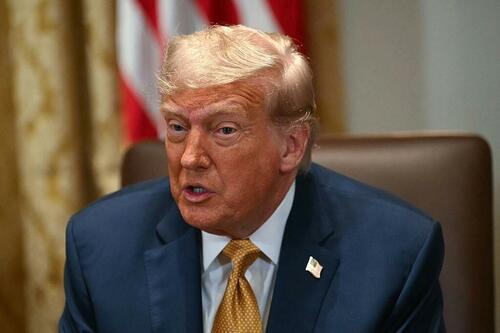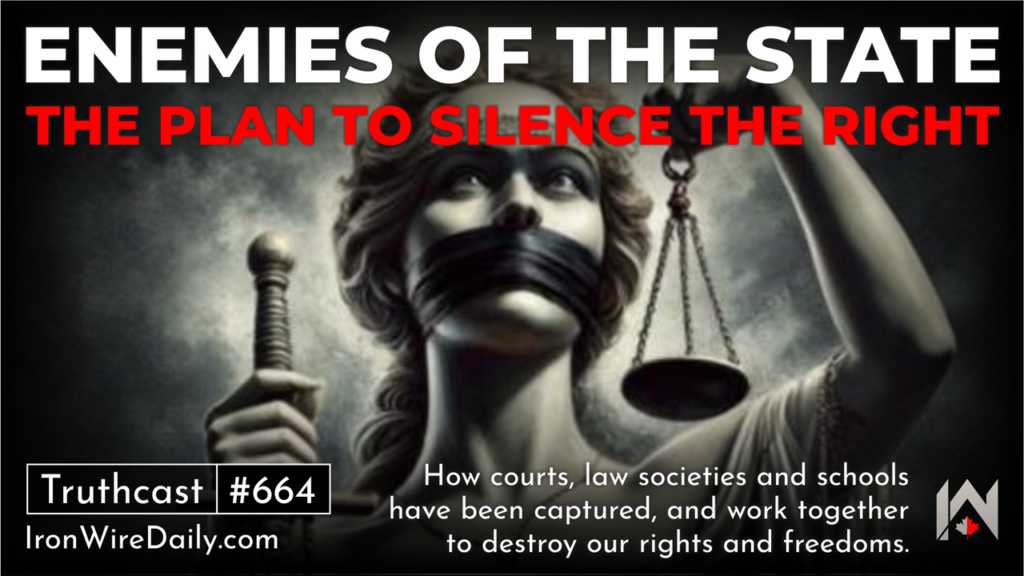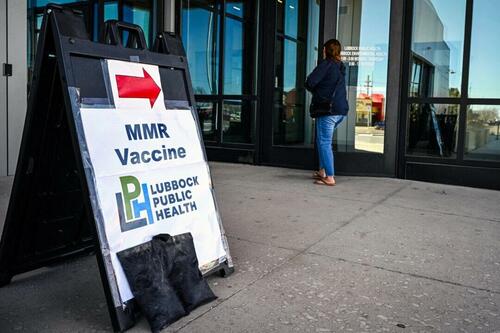Federal Judge Issues New Nationwide Block Targeting Trump’s Birthright Citizenship Order

Authored by Jack Phillips via The Epoch Times,
A federal judge on Thursday has barred the Trump administration from enforcing the president’s executive order limiting birthright citizenship, coming weeks after the Supreme Court restricted the capacity of judges to issue nationwide injunctions.
U.S. District Judge Joseph LaPlante announced his decision after an hour-long hearing and said a written order will follow. The order will include a seven-day stay to allow for appeal, he said.
“That’s irreparable harm, citizenship alone,” he said in court, according to reporters in the courtroom, referring to American citizenship. “It is the greatest privilege that exists in the world.”
President Donald Trump in January issued the order ending automatic birthright citizenship to individuals born in the United States to parents who are illegal immigrants.
Multiple federal judges have issued injunctions against the order since it was issued, while the Supreme Court invalidated those previous court orders by ruling that lower courts cannot issue sweeping orders that block orders nationwide.
At issue is the Constitution’s 14th Amendment, which says that “all persons born or naturalized in the United States and subject to the jurisdiction thereof, are citizens of the United States.”
The lawsuit, brought by the American Civil Liberties Union and other plaintiffs, had argued that the executive order violates the U.S. Constitution’s 14th Amendment and runs afoul of decades of jurisprudence over how to handle birthright citizenship.
But lawyers for the Trump administration have argued that under that text, the United States can deny citizenship to children born of illegal immigrant women due to the line, “subject to the jurisdiction thereof.”
“Prior misimpressions of the citizenship clause have created a perverse incentive for illegal immigration that has negatively impacted this country’s sovereignty, national security, and economic stability,” government lawyers said in court papers filed earlier this year, arguing on behalf of the Trump administration.
The lawyers added, “The Constitution does not harbor a windfall clause granting American citizenship to … the children of those who have circumvented (or outright defied) federal immigration laws.”
The Trump administration and the president himself have argued that the 14th Amendment citizenship clause pertained to former black slaves soon after the Civil War, when the amendment was ratified.
Thirty years later, Wong Kim Ark, a man born in the United States to Chinese parents, was refused re-entry into the country after traveling overseas. His suit led to the Supreme Court ruling that the amendment gives citizenship to anyone born in the United States, no matter their parents’ legal status.
The lawsuit was filed on behalf of a pregnant woman, two parents, and their infants. It’s among numerous cases challenging Trump’s January order denying citizenship to those born to parents living in the United States illegally or temporarily. The plaintiffs are represented by the American Civil Liberties Union and others.
In its complaint, the American Civil Liberties Union wrote for the plaintiffs that “the framers of the Fourteenth Amendment specifically enshrined this principle in our Constitution’s text to ensure that no one—not even the President—could deny children born in America their rightful place as citizens.”
“They did so with full knowledge and intent that this would protect the children of immigrants, including those facing discrimination and exclusion,” lawyers for the group said.
Last month, the Supreme Court ruled 6–3 that federal judges lack the authority to grant nationwide injunctions, although the nine justices didn’t rule on the merits of Trump’s birthright citizenship order.
With the decision, the birthright citizenship cases were returned to lower courts, where judges will have to decide how to amend their orders to comply with the high court ruling. Enforcement of the policy can’t take place for another 30 days, the Supreme Court wrote.
After the court issued its ruling, Trump told reporters at the White House in late June that he would go ahead and pursue his policy agenda and said he has a “whole list” compiled.
The list includes policies on “birthright citizenship, ending sanctuary city funding, suspending refugee resettlement, freezing unnecessary funding, stopping federal taxpayers from paying for transgender surgeries, and numerous other priorities of the American people,” he said.
Loading…













